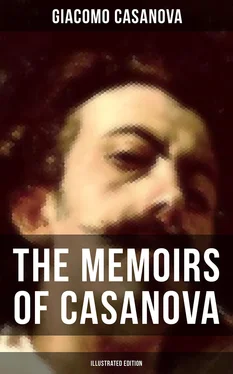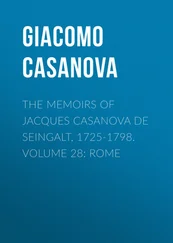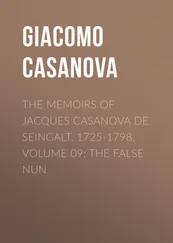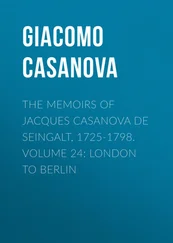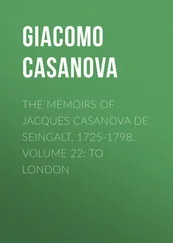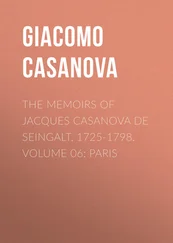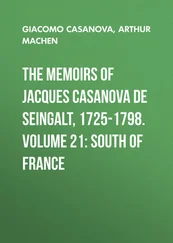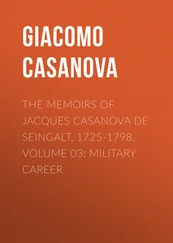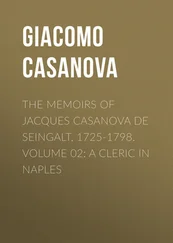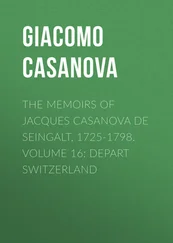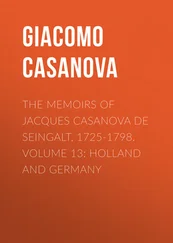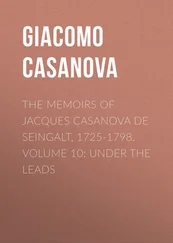Two days before his death, feeling that his end was at hand, my father expressed a wish to see us all around his bed, in the presence of his wife and of the Messieurs Grimani, three Venetian noblemen whose protection he wished to entreat in our favour. After giving us his blessing, he requested our mother, who was drowned in tears, to give her sacred promise that she would not educate any of us for the stage, on which he never would have appeared himself had he not been led to it by an unfortunate attachment. My mother gave her promise, and the three noblemen said that they would see to its being faithfully kept. Circumstances helped our mother to fulfill her word.
At that time my mother had been pregnant for six months, and she was allowed to remain away from the stage until after Easter. Beautiful and young as she was, she declined all the offers of marriage which were made to her, and, placing her trust in Providence, she courageously devoted herself to the task of bringing up her young family.
She considered it a duty to think of me before the others, not so much from a feeling of preference as in consequence of my disease, which had such an effect upon me that it was difficult to know what to do with me. I was very weak, without any appetite, unable to apply myself to anything, and I had all the appearance of an idiot. Physicians disagreed as to the cause of the disease. He loses, they would say, two pounds of blood every week; yet there cannot be more than sixteen or eighteen pounds in his body. What, then, can cause so abundant a bleeding? One asserted that in me all the chyle turned into blood; another was of opinion that the air I was breathing must, at each inhalation, increase the quantity of blood in my lungs, and contended that this was the reason for which I always kept my mouth open. I heard of it all six years afterward from M. Baffo, a great friend of my late father.
This M. Baffo consulted the celebrated Doctor Macop, of Padua, who sent him his opinion by writing. This consultation, which I have still in my possession, says that our blood is an elastic fluid which is liable to diminish or to increase in thickness, but never in quantity, and that my haemorrhage could only proceed from the thickness of the mass of my blood, which relieved itself in a natural way in order to facilitate circulation. The doctor added that I would have died long before, had not nature, in its wish for life, assisted itself, and he concluded by stating that the cause of the thickness of my blood could only be ascribed to the air I was breathing and that consequently I must have a change of air, or every hope of cure be abandoned. He thought likewise, that the stupidity so apparent on my countenance was caused by nothing else but the thickness of my blood.
M. Baffo, a man of sublime genius, a most lascivious, yet a great and original poet, was therefore instrumental in bringing about the decision which was then taken to send me to Padua, and to him I am indebted for my life. He died twenty years after, the last of his ancient patrician family, but his poems, although obscene, will give everlasting fame to his name. The state-inquisitors of Venice have contributed to his celebrity by their mistaken strictness. Their persecutions caused his manuscript works to become precious. They ought to have been aware that despised things are forgotten.
As soon as the verdict given by Professor Macop had been approved of, the Abbe Grimani undertook to find a good boarding-house in Padua for me, through a chemist of his acquaintance who resided in that city. His name was Ottaviani, and he was also an antiquarian of some repute. In a few days the boarding-house was found, and on the 2nd day of April, 1734, on the very day I had accomplished my ninth year, I was taken to Padua in a 'burchiello', along the Brenta Canal. We embarked at ten o'clock in the evening, immediately after supper.
The 'burchiello' may be considered a small floating house. There is a large saloon with a smaller cabin at each end, and rooms for servants fore and aft. It is a long square with a roof, and cut on each side by glazed windows with shutters. The voyage takes eight hours. M. Grimani, M. Baffo, and my mother accompanied me. I slept with her in the saloon, and the two friends passed the night in one of the cabins. My mother rose at day break, opened one of the windows facing the bed, and the rays of the rising sun, falling on my eyes, caused me to open them. The bed was too low for me to see the land; I could see through the window only the tops of the trees along the river. The boat was sailing with such an even movement that I could not realize the fact of our moving, so that the trees, which, one after the other, were rapidly disappearing from my sight, caused me an extreme surprise. "Ah, dear mother!" I exclaimed, "what is this? the trees are walking!" At that very moment the two noblemen came in, and reading astonishment on my countenance, they asked me what my thoughts were so busy about. "How is it," I answered, "that the trees are walking."
They all laughed, but my mother, heaving a great sigh, told me, in a tone of deep pity, "The boat is moving, the trees are not. Now dress yourself."
I understood at once the reason of the phenomenon. "Then it may be," said I, "that the sun does not move, and that we, on the contrary, are revolving from west to east." At these words my good mother fairly screamed. M. Grimani pitied my foolishness, and I remained dismayed, grieved, and ready to cry. M. Baffo brought me life again. He rushed to me, embraced me tenderly, and said, "Thou are right, my child. The sun does not move; take courage, give heed to your reasoning powers and let others laugh."
My mother, greatly surprised, asked him whether he had taken leave of his senses to give me such lessons; but the philosopher, not even condescending to answer her, went on sketching a theory in harmony with my young and simple intelligence. This was the first real pleasure I enjoyed in my life. Had it not been for M. Baffo, this circumstance might have been enough to degrade my understanding; the weakness of credulity would have become part of my mind. The ignorance of the two others would certainly have blunted in me the edge of a faculty which, perhaps, has not carried me very far in my after life, but to which alone I feel that I am indebted for every particle of happiness I enjoy when I look into myself.
We reached Padua at an early hour and went to Ottaviani's house; his wife loaded me with caresses. I found there five or six children, amongst them a girl of eight years, named Marie, and another of seven, Rose, beautiful as a seraph. Ten years later Marie became the wife of the broker Colonda, and Rose, a few years afterwards, married a nobleman, Pierre Marcello, and had one son and two daughters, one of whom was wedded to M. Pierre Moncenigo, and the other to a nobleman of the Carrero family. This last marriage was afterwards nullified. I shall have, in the course of events, to speak of all these persons, and that is my reason for mentioning their names here.
Ottaviani took us at once to the house where I was to board. It was only a few yards from his own residence, at Sainte-Marie d'Advance, in the parish of Saint-Michel, in the house of an old Sclavonian woman, who let the first floor to Signora Mida, wife of a Sclavonian colonel. My small trunk was laid open before the old woman, to whom was handed an inventory of all its contents, together with six sequins for six months paid in advance. For this small sum she undertook to feed me, to keep me clean, and to send me to a day-school. Protesting that it was not enough, she accepted these terms. I was kissed and strongly commanded to be always obedient and docile, and I was left with her.
In this way did my family get rid of me.
Table of Contents
Читать дальше
